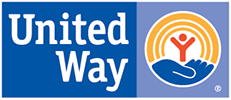Breakfast after the bell - Other

Breakfast after the bell
Every day, high school student Jordan Aliff comes to school at 5 a.m. to attend student council meetings before a full day of classes. It takes a lot of energy, and it's nearly impossible for him to concentrate on learning when he's hungry.
Access to breakfast can impact attendance, test scores and even graduation rates. Students who eat breakfast attend 1.5 more days of school per year and score 17.5 percent higher on standardized math tests. Fewer absences and higher grades drive high school graduation rates up 20-25 percent.
Research indicates that kids are more likely to eat breakfast at school when it's easy to access. That's why United Way works with schools to change the way they serve meals by trying things like serving breakfast in the classroom, using mobile food carts, or offering breakfast after classes have begun.
"Having free, accessible breakfast for all students creates equity and encourages students to eat," says United Way's Bryan VanDorn. "If we continue to educate schools and parents, we can have a positive impact."
Donors make this program possible. Because of United Way supporters, more students start their school day energized and ready to learn.
"We need to take care of all of students' needs, and that includes nutritional needs," says Hazel Park High School Principal Matthew Dailey. "We believe this is saving lives."


